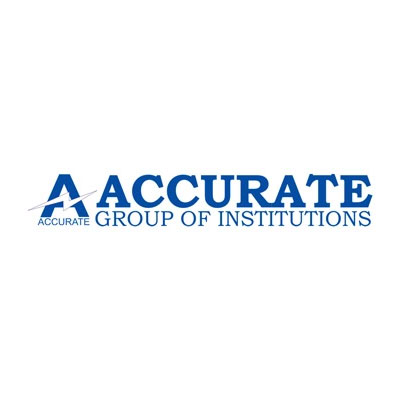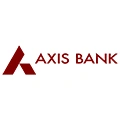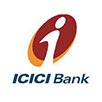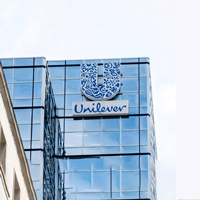For those who want to pursue a successful career in computer science and information technology, the Master of Computer Applications (MCA) is a highly sought-after postgraduate degree. The MCA curriculum is well-liked by both students and professionals since it offers a thorough grasp of numerous computer principles and their real-world applications. To fund your academic endeavours, you must create an effective budget and have a comprehensive grasp of the MCA course costs before starting this academic journey. This post will discuss the different MCA course fees, prospective funding options, and crucial financial planning advice to help you fulfil your MCA dreams a reality.
Master of Computer Applications (MCA) is a postgraduate program that holds immense value for students aiming to excel in the dynamic world of information technology. While this degree opens doors to exciting career opportunities, understanding the intricacies of MCA course fees is crucial for aspirants planning their educational path. In this concise guide, we will explore the key components of MCA course fees, potential financial assistance options, and essential insights to help students make informed decisions regarding their academic and financial future. Let's shed light on the financial aspect of pursuing an MCA degree and empower students to embark on their educational journey with confidence.
Understanding MCA Course Fees at Accurate Institute of Management and Technology:

MCA course fees can vary from one institution to another, and Accurate Institute is no exception. The course fees at Accurate Institute for the MCA program encompass several components, each contributing to the overall cost of pursuing the degree. To gain a comprehensive understanding of the MCA course fees at Accurate Institute, let's explore these components:
Tuition Fees:
The tuition fees for MCA programs can vary significantly based on the reputation and ranking of the university, the duration of the program, and the facilities provided. Generally, private Colleges tend to have higher tuition fees compared to public or government-funded institutions.
Examination Fees:
Examination fees are charged separately for each semester or academic year. These fees cover the expenses associated with conducting examinations, evaluating answer scripts, and issuing academic transcripts.
Registration Fees:
Registration fees are one-time charges incurred at the beginning of the MCA program. These fees cover administrative expenses related to enrolling students in the course. Registration fees can vary depending on the colleges policies.
Library Charges:
Libraries play a crucial role in academic pursuits, providing students with access to a vast array of books, journals, research papers, and online resources. To maintain and expand these facilities, colleges charge a nominal library fee as part of the overall MCA course fees.
Hostel and Accommodation Fees (if applicable):
For students living on campus or availing college-provided accommodation, hostel fees will be an additional cost. Hostel fees cover the cost of accommodation, food, and other amenities. If students choose to live off-campus, they will have to consider private accommodation expenses separately.
Miscellaneous Expenses:
There may be other miscellaneous expenses related to extracurricular activities, seminars, workshops, industry visits, and events organized by the institution. While these expenses may not be substantial individually, they can collectively contribute to the overall cost of pursuing an MCA degree.
Examination Revaluation Fees (if applicable):
If a student wishes to apply for revaluation of their examination answer scripts, there may be additional fees associated with this process.
Financial Planning for Pursuing MCA

Pursuing an MCA degree involves a significant financial commitment, and proper financial planning is essential to ensure a smooth academic journey without undue financial stress. Here are some crucial steps to create an effective financial plan for pursuing MCA:
Research Different Institutions:
Start by researching various universities or colleges offering MCA programs. Compare their course fees, facilities, reputation, and placement opportunities. opt for institutions that strike a balance between quality education and affordable fees.
Explore Scholarships and Financial Aid:
Many universities and government bodies offer scholarships and financial aid to meritorious students. Investigate the scholarships available for MCA students and apply for them as early as possible. Additionally, check if you are eligible for any government-sponsored financial assistance programs.
Student Loans:
If scholarships and financial aid are insufficient to cover the entire MCA course fees, consider student loans as a viable option. Many banks and financial institutions offer student loans at favourable interest rates. Ensure you understand the loan terms and repayment options before committing to one.
Savings and Investments:
If you have some savings or investments, evaluate how much you can contribute towards your MCA course fees. It's crucial to strike a balance between using your savings and ensuring financial security during and after your MCA program.
Part-Time Work and Internships:
Consider taking up part-time work or internships while pursuing your MCA degree. Many universities allow students to work on-campus or offer internship opportunities in the field of computer applications. Earning a stipend or salary can help reduce the financial burden.
Emergency Fund:
Build an emergency fund to handle unforeseen expenses or emergencies. Having a safety net can prevent financial setbacks and ensure a smoother academic journey.
Seek Advice from Financial Advisors:
If you find financial planning overwhelming, consider seeking advice from financial advisors or counsellors. They can provide personalized guidance based on your specific circumstances and help you make informed decisions.
CONCLUSION:
Pursuing a Master of Computer Applications (MCA) degree opens a world of opportunities in the dynamic field of computer science and information technology. However, before embarking on this educational journey, it is crucial to have a comprehensive understanding of the MCA course fees and to create a robust financial plan. Conduct thorough research, explore scholarships and financial aid options, and consider student loans if needed. Budgeting, part-time work, and internships can also play a significant role in managing the financial burden. By taking proactive steps and making informed financial decisions, you can pave the way for a successful and fulfilling MCA experience without compromising your financial stability.


















